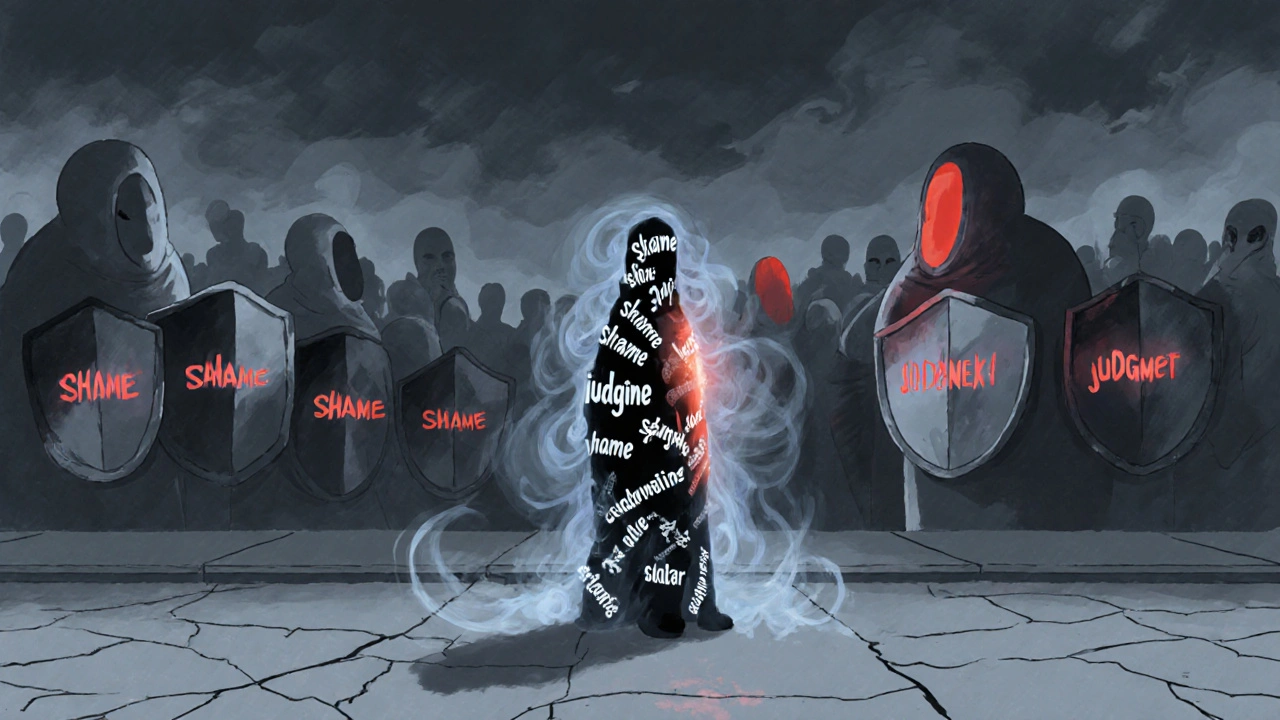Syphilis Stigma
When people hear syphilis, a bacterial infection spread mostly through sexual contact that can be cured with antibiotics. Also known as the great imitator, it can look like many other conditions and was once deadly before penicillin became common. But today, the biggest threat isn’t the bacteria—it’s the shame.
Why does syphilis stigma still exist? Because people still link it to moral failure, promiscuity, or poor choices. But that’s not how infections work. Syphilis doesn’t care if you’re married, single, in a long-term relationship, or have one partner. It spreads when someone has an open sore and comes into contact with it. The CDC reports over 2 million cases globally each year, and in the U.S., rates have tripled since 2010. Yet, many avoid testing because they’re afraid of being judged—not by doctors, but by friends, family, or even themselves.
This stigma doesn’t just hurt feelings—it kills. People delay getting tested because they’re embarrassed. They skip follow-up care because they’re ashamed to return. They don’t tell partners because they fear rejection. And when syphilis goes untreated, it doesn’t just linger—it moves. It can attack the brain, heart, eyes, and nervous system. Early detection means a single shot of penicillin. Late detection? Months of IV antibiotics, permanent damage, or worse.
It’s not just about syphilis. This shame is part of a bigger pattern: STI stigma, the social punishment people face for contracting sexually transmitted infections. Also known as sexual health shame, it affects people with chlamydia, gonorrhea, herpes, and HIV too. But syphilis carries extra weight because it’s old, visible in its later stages, and misunderstood. People think it’s a relic of the past, not something rising right now in their own communities.
Real change starts when we stop treating infection like a personal flaw and start treating it like a medical fact. You don’t get syphilis because you’re bad—you get it because you had contact with an infected sore. That’s it. No judgment needed. No guilt required. Just care. And care means testing, treatment, and talking openly—without fear.
Below, you’ll find real guides that cut through the noise: how syphilis is diagnosed, what treatments actually work, how to talk to partners without panic, and why public health tools matter more than ever. No fluff. No shame. Just facts that help you stay healthy.
Syphilis Stigma: How to Break Down Barriers to Treatment
Explore how social stigma blocks syphilis testing and treatment, and discover clear actions for individuals, communities, and policymakers to break down those barriers.
More
